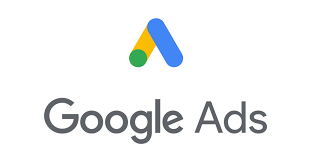Affordable Google Ads: Maximizing Your Budget Effectively

Google Ads can be a highly effective tool for driving traffic and generating leads, but it can also be expensive if not managed properly. Small businesses often have limited budgets, so it's crucial to maximize every dollar spent. Here are some strategies to help you get the most out of your Google Ads budget.
1. Set Clear Goals
Before you start your Google Ads campaign, define clear and specific goals. Whether it's increasing website traffic, generating leads, boosting sales, or raising brand awareness, having well-defined objectives will guide your campaign strategy and help you measure success.
2. Choose the Right Keywords
Keyword selection is crucial for the success of your Google Ads campaign. Focus on long-tail keywords that are specific to your business and have lower competition. These keywords are often less expensive and can attract more qualified leads. Use tools like Google Keyword Planner to find the best keywords for your campaign.
3. Optimize Your Ad Copy
Your ad copy should be compelling and relevant to the keywords you’re targeting. Include a strong call-to-action (CTA) to encourage clicks. Highlight the unique selling points of your product or service to differentiate yourself from competitors. Regularly test different versions of your ad copy to see which performs best.
4. Use Ad Extensions
Ad extensions provide additional information and give your ads more visibility. Extensions can include site links, call buttons, location information, and more. These not only make your ads more informative but can also improve your click-through rate (CTR) without additional cost.
5. Focus on Quality Score
Google uses a Quality Score to measure the relevance and quality of your keywords and ads. A higher Quality Score can lower your cost-per-click (CPC) and improve your ad position. To improve your Quality Score, ensure that your keywords, ad copy, and landing pages are all highly relevant to each other.
6. Use Negative Keywords
Negative keywords prevent your ads from showing up for irrelevant searches. By adding negative keywords, you can avoid wasting money on clicks that are unlikely to convert. Regularly review your search terms report to identify and exclude irrelevant keywords.
7. Geo-Targeting
Geo-targeting allows you to focus your ads on specific locations where your target audience is most likely to be. This is particularly useful for local businesses or those targeting specific regions. By narrowing down your geographic focus, you can reduce wasted spend and increase the relevance of your ads.
8. Set a Budget and Bid Strategically
Set a daily budget that you’re comfortable with and adjust your bids based on the performance of your keywords. Use bidding strategies like manual CPC to have more control over your budget. Consider using automated bidding strategies like Target CPA (Cost Per Acquisition) or Target ROAS (Return on Ad Spend) if you have clear conversion goals.
9. Optimize Your Landing Pages
Your landing page plays a crucial role in converting clicks into customers. Ensure that your landing pages are relevant to your ad copy and provide a clear path to conversion. A well-designed landing page with a strong CTA can significantly improve your conversion rates and reduce your cost per acquisition.
10. Monitor and Adjust Your Campaigns
Regularly monitor your campaign performance using Google Ads analytics tools. Pay attention to key metrics such as CTR, conversion rate, and CPC. Use this data to make informed adjustments to your keywords, bids, and ad copy. Continuous optimization is key to maximizing your budget.
11. Leverage Remarketing
Remarketing allows you to target users who have previously visited your website but did not convert. By showing ads to these users as they browse other sites, you can remind them of your offerings and encourage them to return and complete a purchase. Remarketing can be a cost-effective way to improve conversion rates.
12. Schedule Your Ads
Ad scheduling, or dayparting, enables you to display your ads at specific times of the day or days of the week when your target audience is most active. This ensures that your budget is spent during peak times for engagement and conversions, thereby increasing the efficiency of your ad spend.
Conclusion
Affordable Google Ads strategies can help small businesses achieve their marketing goals without overspending. By setting clear goals, selecting the right keywords, optimizing ad copy and landing pages, using ad extensions and negative keywords, and continuously monitoring and adjusting your campaigns, you can maximize your Google Ads budget effectively. With careful planning and strategic execution, Google Ads can be a powerful tool to drive growth and success for your small business.
- Art
- Causes
- Crafts
- Dance
- Drinks
- Film
- Fitness
- Food
- Games
- Gardening
- Health
- Home
- Literature
- Music
- Networking
- Other
- Party
- Religion
- Shopping
- Sports
- Theater
- Wellness


